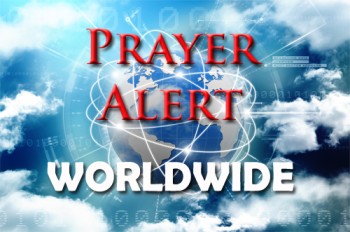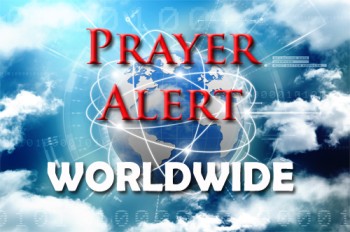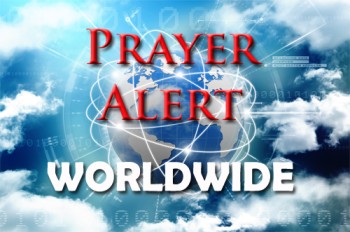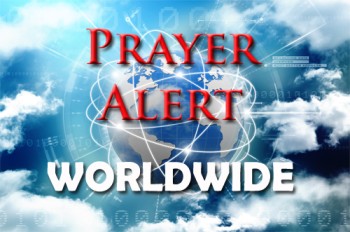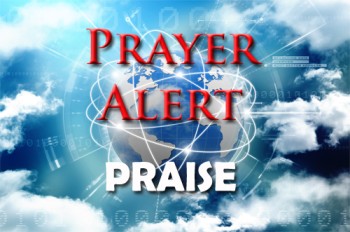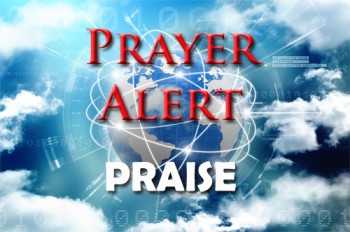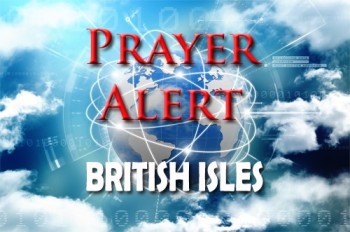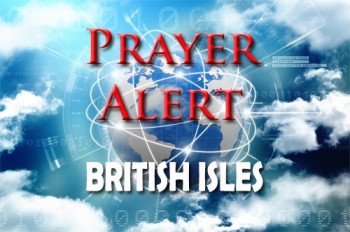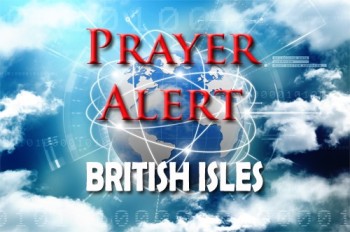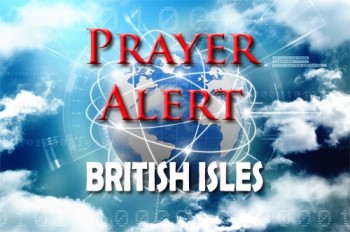
David Fletcher
David Fletcher is Prayer Alert’s Editor.
He is part of a voluntary team who research, proof-read and publish Prayer Alert each week.
If you would like to make a donation towards our running costs, please click here.
There has been widespread outrage after the government acquired an Airbus A330 for the presidential fleet despite the severe economic crisis. This move comes just weeks after nationwide protests over rising hunger and living costs. President Tinubu, who has implemented several economic reforms like the removal of fuel subsidies, justifies these changes as necessary for reducing government spending and fostering long-term growth. Despite announcing a 60% reduction in official travel delegations, he travelled to France using the newly acquired plane, which was bought to replace an older one. The cost of the plane and the purpose of his trip remain undisclosed. Many have condemned the purchase as insensitive, but officials said that the presidential fleet had a high maintenance cost due to the age of its planes, so it was a necessary investment.
Paetongtarn Shinawatra, 37, has been officially endorsed by King Maha Vajiralongkorn as Thailand’s new prime minister, just two days after her election by parliament. The country’s youngest and second female leader, she follows in the footsteps of her father, former PM Thaksin Shinawatra, and her aunt, Yingluck Shinawatra, the country's first female premier. She has taken over after the dismissal of her predecessor, Srettha Thavisin, by the constitutional court. In her first speech, she pledged to govern with an open heart, emphasising stability and continuity. She has vowed to maintain key policies of her predecessor, focusing on economic stimulus, healthcare reform, tackling illegal drugs, and promoting gender diversity. The economy is a real concern for voters, with many asking why her party has failed to fulfil its promise to give about $300 to every voter in Thailand.
Canada’s two major rail freight companies have initiated a nationwide shutdown and locked out nearly ten thousand workers after failed negotiations with the Teamsters union. This unprecedented rail stoppage threatens to severely impact the Canadian economy and disrupt cross-border trade with the USA, as the country relies heavily on rail transport for shipping goods like grain, potash, coal, petroleum, and aviation fuel. The lockout will also hit the mining, agriculture and retail industries. It comes after months of tense negotiations over worsening job conditions, which failed to yield an agreement. Industry groups have urged the Canadian government to intervene, warning that the stoppage could have a cascading effect on multiple sectors, including mining, agriculture, and aviation. However, Justin Trudeau has insisted that the dispute must be resolved at the negotiating table.
Customs officers in San Diego have seized over $5 million worth of methamphetamines (often known as crystal meth) disguised as watermelons. A 29-year-old man attempted to smuggle the drugs across the US-Mexico border. However, further inspection revealed 1,220 packages wrapped to resemble watermelons, containing 2,080 kg of methamphetamine. This seizure highlights the evolving smuggling techniques used by drug cartels. The officers confiscated the drugs and the tractor-trailer, handing the driver over to Homeland Security Investigations. They were commended for their diligence in intercepting these sophisticated smuggling efforts. This success follows the recent seizure of 285 kg of meth hidden among celery, demonstrating the ongoing battle against drug trafficking.
Abraham Aguilar, a senior at Palmdale High School, experienced a profound transformation after a life of rebellion and substance abuse. Raised in a troubled environment, his life changed when he reluctantly attended church with his mother, who demanded his attendance as a condition for living in her house. Initially, he resisted, sitting in what he now calls 'backslider lane’, but the consistent preaching began to break through his hardened heart. After attending a men’s discipleship seminar, he felt God urging him, 'It’s either now or never.' He surrendered his life to Christ, which ignited a passion for evangelism. During his senior year, Abraham boldly shared the Gospel with his classmates, teachers, and even janitors. Starting with a small Bible study group, his efforts led to 895 students accepting Christ by the end of the school year. Abraham’s journey from a backslidden pothead to a fervent evangelist demonstrates the transformative power of God’s grace and the impact of one obedient heart.
During the Olympic Games, countless lives were transformed not just by athletic achievements but by encounters with Jesus Christ. Over 2,500 missionaries from various organisations mobilised across the city, leading over a thousand people to faith. YWAM saw 250 commitments to Christ and ministered to over 3,500 people, witnessing numerous miraculous healings. Similarly, Awakening Europe’s 'Unite Paris24' saw 152 conversions, including the remarkable healing of a man with a bullet wound. The efforts extended beyond Paris, with groups like 'Next Move' focusing on southern France, strengthening local Christian community efforts through sports and festivals. Thousands of Bibles and tracts were distributed across the country. Other initiatives included the Paris Praise Festival and Christian art galleries, offering solace and sparking spiritual conversations among visitors. The Olympic Village chaplaincy, where thirty Protestant chaplains served, provided support and a spiritual haven for athletes, many of whom shared their faith after their competitions. Throughout the Games, 24/7 prayer efforts underscored the spiritual impact, with IPC's global prayer networks gifting 835,000 prayers for France to date. See
Recent riots across the UK, sparked by a tragic stabbing incident, have highlighted deep-seated tensions within British communities. The violence, exacerbated by false information on social media, led to anti-Muslim protests and widespread unrest in over twenty locations. Many of the rioters were linked to far-right groups, leading to vandalism and looting, particularly targeting Asian-owned businesses. This unrest has served as a wake-up call, revealing that underlying issues of hostility towards immigration, particularly against Muslims, persist in the UK. Danny Webster, EAUK’s director of advocacy emphasised the importance of the Church in rebuilding fractured communities. He noted that while it is crucial to listen to people’s grievances, it is equally important to challenge misinformation and harmful rhetoric. McDonald, head of Theos, urged Christians to share positive stories of immigrants contributing to society, to counteract the negative stereotypes that fuel such hostility. The Church’s role in promoting peace and understanding is vital in these turbulent times, as it seeks to heal divisions and restore harmony in the nation.
After three years of strikes and bitter disputes, the long-running conflict between train drivers and rail operators in the UK is nearing resolution. The train drivers' union, ASLEF, is recommending its members accept a 'no-strings' pay deal that includes backdated wages and three incremental pay increases: 5% for 2022-2023, 4.75% for 2023-2024, and 4.5% for 2024-2025. This deal would raise the average salary of a train driver from £60,000 to £69,000, with members receiving approximately £6,000 in backdated pay. Mick Whelan, ASLEF's general secretary, expressed satisfaction with the offer, which meets the union's demands without compromising on terms and conditions. The deal marks a significant shift from the previous government’s stance. If approved by union members, it will end a series of disruptive strikes that began in July 2021 and have heavily impacted rail passengers and freight across the country. The Government says that resolving the dispute is a key step toward improving the UK’s railways for both passengers and staff.
The UK economy showed a growth of 0.6% over three months, marking a positive trend despite a flatline in June, attributed to the general election and ongoing strikes. Businesses across various industries delayed purchases pending the election's outcome, while strikes, including those by junior doctors, further contributed to the stagnation. The June GDP figure fell from the previous month’s 0.4% growth, yet overall the UK outperformed most G7 nations in the first half of 2024. The UK’s growth, particularly in scientific research, IT, and legal services, has been the highest among G7 nations. This consistent growth has left the threat of recession behind, a significant achievement after the economy contracted at the end of 2023. The Labour government has highlighted economic growth as essential to funding public sector investments without increasing national debt.
The mother of Ioan Pintaru, a Romanian man accused of stabbing an eleven-year-old Australian tourist in London’s Leicester Square, expressed deep sorrow for the incident. Magda Girla apologised publicly, stating, 'I’m deeply sorry for what happened to that little girl. I suffer together with her mother and can’t describe the pain I’m in.' Pintaru, 32, allegedly attacked the girl near the Lego store, stabbing her eight times in a random, unprovoked assault. He had been working as a long-distance lorry driver for ten years, moved to England six years ago and had recently returned after a brief stay in Romania. He was described as homeless during his court appearance, where he was charged with attempted murder and possession of a bladed article. The attack was interrupted by a quick-thinking security guard who restrained Pintaru until police arrived. The young victim, who sustained severe injuries, will require plastic surgery. Pintaru is currently in custody and scheduled to appear at the Old Bailey on 10 September.

